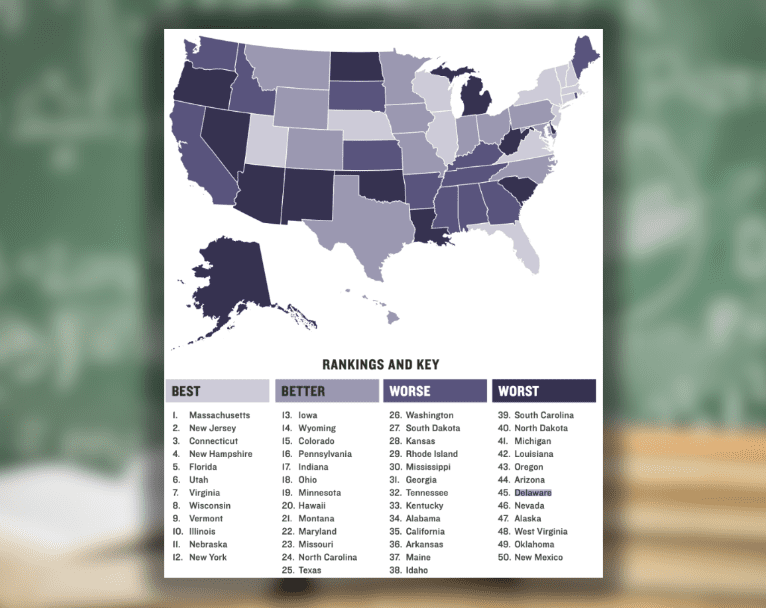A report from a national nonprofit focused on the wellbeing of America’s children confirms what most Delawareans have learned over the past couple of years: education in the First State is far from first.
The Annie E. Casey Foundation’s 54-page report lists Delaware 45th in education – or sixth worst in the entire country.
But, it highlights a lot of that has to do with the lived experiences of First State children.
For example, 43% of Delaware children experienced one or more adverse childhood experiences in 2021-2022, the year a lot of the report’s data showcases.
Furthermore, 27% of students are chronically absent, which means they miss more than 10% of the days in an academic year.
On a positive note, Delaware ranks eighth best for economic wellbeing for children. It’s middle of the pack – 25th – in health.
Parental involvement and engagement has been a talking point for education experts, and the Casey Foundation’s report ranks Delaware as 32nd for “family and community.” This takes into account the safety of children and financial wellbeing of parents and their involvement in their child’s education.
RELATED: FSE says parents need to engage in their kids’ education
What the report calls the “overall childhood well-being,” Delaware ranks 31st, which is the combination of the education (45th), economic wellbeing (eighth), health (25th) and family and community (32nd).
The low proficiency and bad test scores has been another red flag, and the report points out that 75% of fourth-graders are not proficient in reading and 82% of eighth-graders are not proficient in math.
About 13%, or 26,000 of children, live below the poverty line in the state, and 50,000, or 24%, have parents who lack secure employment.
While a small number, 3%, or 2,000, teenagers in Delaware are not working and are not in school.
The majority, 55%, of three and four year olds are not in school.
The report gave recommendations to improve educational outcomes, not just for Delaware, but every state.
Those suggestions include ensuring essential resources like low/no-cost meals are available, intensive tutoring services, access to mental health care unique to a child’s background and experiences and evidence-based solutions while testing various methods to sustainable efforts.
Attempts to reach the Delaware Department of Education Tuesday were unsuccessful.
What’s Delaware doing?
Over the last couple of years, the state legislature has taken measures to counteract some of the barriers and stains the Casey Foundation’s report has pointed out.
It has passed laws and has considered bills requiring more mental health professionals in schools, lowering the school board term-length from five to four years to encourage more involvement, requirements on livestreaming board meetings and publicly posting meeting documents, free school meals for more students and more.
Also, the Student Behavior and School Climate Task Force was created in March to evaluate and make recommendations to improve disciplinary measures for misbehaved students while creating a more positive learning environment.
There’s also a state literacy plan and math plan focused on evidence-based learning, such as the science of reading which focuses in-part on phonics.
Many schools partner with social services to support students with disadvantages like homelessness, transportation, hunger and more.
Community organizations are often contracted to provide literacy and math coaches to schools.


Raised in Doylestown, Pennsylvania, Jarek earned a B.A. in journalism and a B.A. in political science from Temple University in 2021. After running CNN’s Michael Smerconish’s YouTube channel, Jarek became a reporter for the Bucks County Herald before joining Delaware LIVE News.
Jarek can be reached by email at [email protected] or by phone at (215) 450-9982. Follow him on Twitter @jarekrutz and on LinkedIn
Share this Post








